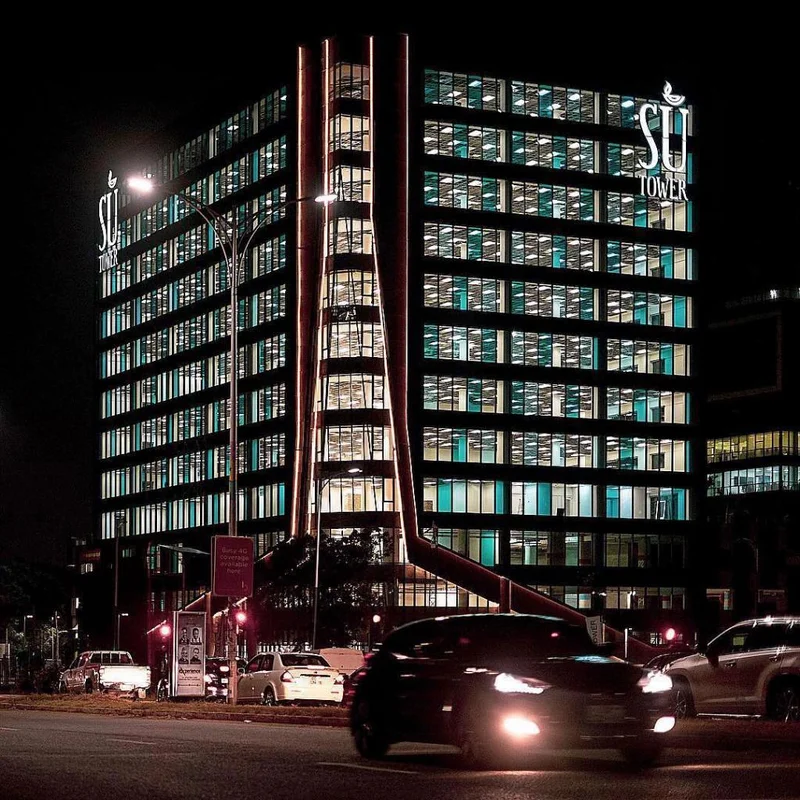BNB Signals | Binance Coin Trading Alerts & Insights
BNB Signals | Binance Coin Trading Alerts & Insights
Accra, Ghana. It’s not just a dot on the map anymore. A flurry of recent activity—from military summits to architectural innovation—suggests a city actively scripting its next chapter. But is it a cohesive narrative, or just a collection of disparate events? Let’s break it down.
The African Land Forces Summit (ALFS) 2025, held in Accra this past April, brought together military leaders from nearly 40 African nations. The stated goal? Addressing shared security challenges. Major General Gainey emphasized "collaboration and dialogue," and Ambassador Palmer spoke of "optimizing land forces' capability." All standard summit rhetoric. But the actual impact? That's harder to quantify. The summit's been running for 15 years, but has the needle moved on the region's security? It’s tough to say. (Anecdotally, defense spending in the region has steadily risen.)
More tangible, perhaps, is the Backyard Community Club, a new sports facility in Accra featuring a tennis court and a "sustenance garden." Designed by DeRoche Projects, it's notable for being built using locally produced precast rammed-earth modules. Sustainable architecture is the buzzword, with the architect emphasizing "deep engagement with local builders, athletes, and educators." It's a feel-good story, for sure. But does a single tennis court truly represent a paradigm shift in Accra's urban development? (You can Check out Backyard Community Club, Ghana's new tennis court at Wallpaper.com.)
The UN-GGIM: Africa is also convening in Accra this November, alongside the Africa Geographic Information Systems Conference 2025 (AfricaGIS 2025). They’ll be discussing "harnessing geospatial intelligence for Africa’s sustainable and resilient future." The ECA (Economic Commission for Africa) highlights progress in modernizing mapping and data systems. Again, the rhetoric is optimistic, but the devil's in the data. How accessible is this geospatial information to the average Ghanaian citizen? How effectively is it being used to address pressing issues like urbanization and resource management? These are questions that require more than just conference presentations.
And then there's the "Accra Reset," an initiative aimed at dismantling the "legacy aid system" and pushing for "national ownership and more equitable global cooperation." Lofty goals, to be certain. But the global health architecture is "struggling to hold steady amid plummeting foreign aid," according to reports. So, is the "Accra Reset" a genuine attempt at systemic change, or just a rebranding exercise in the face of dwindling resources? I've looked at hundreds of these sorts of initiatives, and the success rate is… let's just say, underwhelming.
This confluence of events—military summits, sustainable architecture, geospatial conferences, and aid reform initiatives—paints a picture of Accra as a city on the rise, a hub for innovation and international collaboration. But a closer look reveals a more nuanced reality.

Are these developments truly integrated, or are they operating in silos? Does the sustainable architecture project inform the city's broader urban planning strategies? Does the geospatial data being discussed at the UN conference actually translate into improved infrastructure and resource allocation? And is the "Accra Reset" genuinely empowering local communities, or is it just shifting the burden of responsibility onto them?
The Backyard Community Club, while aesthetically pleasing and environmentally conscious, is, at the end of the day, a single tennis court. Its impact on the broader community remains to be seen. The 230 sq m ‘sustenance garden’ is a nice touch, but it’s hardly a solution to food security challenges (which, by some estimates, affect nearly 20%—closer to 18.6%—of the population).
Similarly, the African Land Forces Summit, while fostering dialogue and collaboration, doesn't guarantee regional stability. Military summits are, after all, performative events. The true measure of their success lies in the reduction of conflict and the promotion of peace—metrics that are notoriously difficult to quantify in the short term.
The UN-GGIM conference holds promise, but its impact hinges on the accessibility and usability of geospatial data. If this data remains locked away in government agencies or inaccessible to local communities, its potential will be severely limited. And this is the part of the report that I find genuinely puzzling. How can you promote "sustainable development" without ensuring that the data is readily available to those who need it most?
The "Accra Reset," with its ambitious goals of dismantling the legacy aid system, faces significant challenges. Foreign aid, while often criticized for its inefficiencies and unintended consequences, still provides crucial support to many developing countries. Replacing this system with a more equitable and sustainable model requires a fundamental shift in power dynamics—a shift that is unlikely to occur overnight.
In short, Accra's ambitions are commendable. The city is clearly striving to forge a new identity as a hub for innovation and international collaboration. But the path to achieving these ambitions is fraught with challenges. True progress requires more than just summits and sustainable architecture. It requires a holistic approach that addresses systemic issues, empowers local communities, and ensures that the benefits of development are shared equitably.